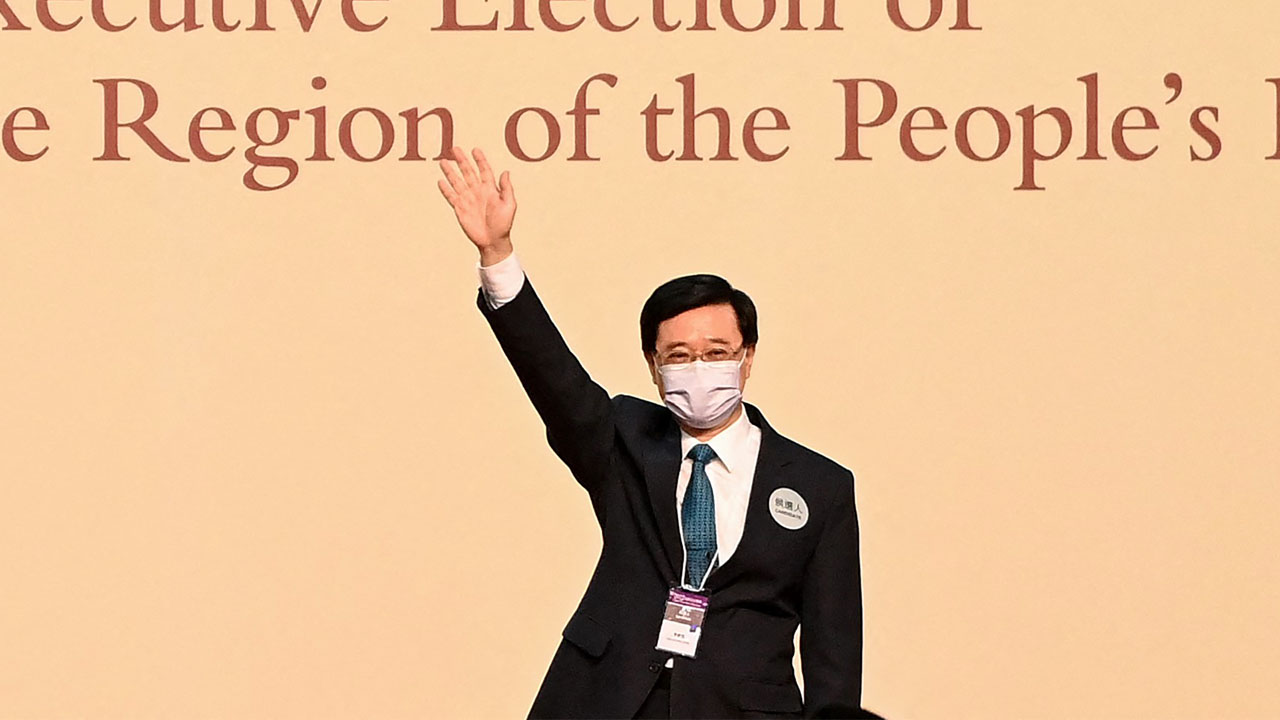
Western multinationals and local tycoons published newspaper adverts on Monday congratulating John Lee on becoming Hong Kong’s next leader, following a rubber-stamp selection process condemned by critics as anti-democratic.
Lee, 64, a former security chief who oversaw the crackdown on Hong Kong’s democracy movement, was anointed the business hub’s new leader on Sunday in a near-unanimous vote by a small committee of Beijing loyalists.
He was the sole candidate in the race to succeed outgoing leader Carrie Lam at a time when Hong Kong is being remoulded in China’s authoritarian image.
Ta Kung Pao and Wen Wei Po, two newspapers that answer to the office which sets Beijing’s Hong Kong policy, were filled with adverts on Monday from leading companies and business figures praising Lee’s selection.
The majority were from Chinese and Hong Kong businesses as well as community organisations.
The “Big Four” accountancy firms — KPMG, Deloitte, EY and PwC — were among western multinationals placing adverts, as were city carrier Cathay Pacific and conglomerates Swire and Jardine Matheson.
Messages were also carried by Hong Kong’s family tycoon-dominated property giants, including Sun Hung Kai and Henderson Land Development.
Western businesses have found themselves in an increasingly precarious position in Hong Kong, especially as geopolitical tensions have risen with China.
Many have embraced progressive political causes in western markets, such as the anti-racism Black Lives Matter movement, same-sex equality and ridding supply chains of labour abuses.
But they usually steer clear of any criticism of China’s policies towards hotspots like Hong Kong, Xinjiang, Tibet and Taiwan.
Some companies such as HSBC, Standard Chartered, Swire and Jardine Matheson publicly backed Beijing’s national security law, which was imposed on Hong Kong after 2019’s democracy protests to curb dissent.
Can Hong Kong reopen?
The elevation of Lee, who is under US sanctions, places a security official in Hong Kong’s top job for the first time after a tumultuous few years for a city battered by political unrest and economically debilitating pandemic controls.
Despite the city’s mini-constitution promising universal suffrage, Hong Kong has never been a democracy, the source of years of protests since the 1997 handover to China.
After the 2019 rallies, Beijing responded with a crackdown and a new “patriots only” political vetting system that eradicated the city’s once outspoken political opposition.
Lee faced no rivals and won 99 percent of the votes cast by the 1,461-strong committee that picks the city’s leader — roughly 0.02 percent of the city’s population.
Beijing hailed the process as “a real demonstration of democratic spirit”.
European Union foreign policy chief Josep Borrell countered that the selection process was a “violation of democratic principles and political pluralism”.
Lee, a former police officer, has vowed to strengthen Hong Kong’s national security and integrate the city further with the mainland.
He wants to reboot the city’s economy and slowly reopen its pandemic sealed borders at a time when rivals have moved to living with the coronavirus.
But it is unclear how he can do that given China has doubled down on its strict zero-Covid strategy.
On Monday morning, Lam met her successor Lee and both gave short speeches stressing that they would prepare for an orderly transition between their administrations.
Lee, who takes over on July 1, was Lam’s security chief and then her deputy.
He was asked by reporters whether Hong Kongers could criticise his administration or risk being arrested for “speech crimes” like dozens of democracy activists in recent years.
Lee took umbrage to that description.
“I think you are very wrong to describe that people are now charged simply because of their expressed opinions,” he said.
“People are brought to court because of the suspicion against them and their actions contravening the law,” he added. “It is their action.”
Lee said his first port of call would be China’s top agencies in Hong Kong — the Liaison Office, the national security committee, the foreign ministry’s office and the People’s Liberation Army garrison.



